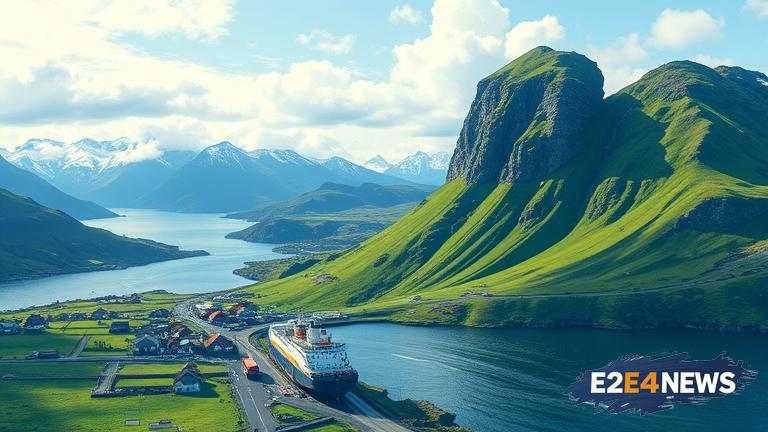Ireland’s exports to Russia have experienced a significant increase, reaching unprecedented heights not seen since 2015. This surge in trade has sparked concern and criticism from Ukraine, which has been embroiled in a conflict with Russia since 2014. The value of Ireland’s exports to Russia has been steadily increasing over the past year, with the country exporting a wide range of goods, including pharmaceuticals, machinery, and food products. The increase in trade between Ireland and Russia has been attributed to a number of factors, including the strengthening of economic ties between the two countries and the growth of the Russian economy. However, the surge in exports has also raised questions about the ethics of trading with a country that has been accused of human rights abuses and has been subject to international sanctions. Ukraine has been particularly critical of Ireland’s decision to increase trade with Russia, citing the country’s ongoing support for separatist groups in eastern Ukraine. The Ukrainian government has called on Ireland to reconsider its trade relationships with Russia and to impose stricter sanctions on the country. The Irish government has defended its decision to increase trade with Russia, citing the importance of maintaining good economic relationships with other countries. However, the government has also acknowledged the concerns raised by Ukraine and has pledged to continue to monitor the situation closely. The increase in trade between Ireland and Russia has also sparked debate about the country’s commitment to upholding human rights and international law. Some critics have argued that Ireland’s decision to increase trade with Russia undermines its commitment to these values and sends the wrong message to other countries. Others have argued that trade can be an important tool for promoting economic development and reducing poverty, and that Ireland’s decision to increase trade with Russia is a pragmatic one. The issue has also sparked a wider debate about the role of trade in international relations and the balance between economic and political considerations. As the situation continues to unfold, it remains to be seen how Ireland will navigate its trade relationships with Russia and other countries. The country will need to carefully consider the potential consequences of its actions and ensure that its trade policies are aligned with its values and commitments. In the meantime, the international community will be watching closely to see how the situation develops. The increase in trade between Ireland and Russia is a complex issue that raises important questions about the ethics of trade and the role of economic relationships in international relations. It is an issue that will require careful consideration and nuanced decision-making. The Irish government will need to weigh the potential benefits of increased trade with Russia against the potential risks and consequences. The country will also need to consider the impact of its actions on its relationships with other countries, including Ukraine. As the situation continues to evolve, it is likely that we will see further developments and announcements from the Irish government. The country’s trade relationships with Russia and other countries will be subject to ongoing scrutiny and debate. The issue has significant implications for Ireland’s economy and its relationships with other countries. It is an issue that will require careful management and diplomacy. The Irish government will need to work closely with other countries, including Ukraine, to ensure that its trade policies are aligned with its values and commitments. The country will also need to consider the potential consequences of its actions and ensure that its trade relationships are transparent and accountable. The increase in trade between Ireland and Russia is a significant development that has sparked international concern. It is an issue that will require ongoing attention and scrutiny. The Irish government will need to carefully consider the potential implications of its actions and ensure that its trade policies are aligned with its values and commitments.
